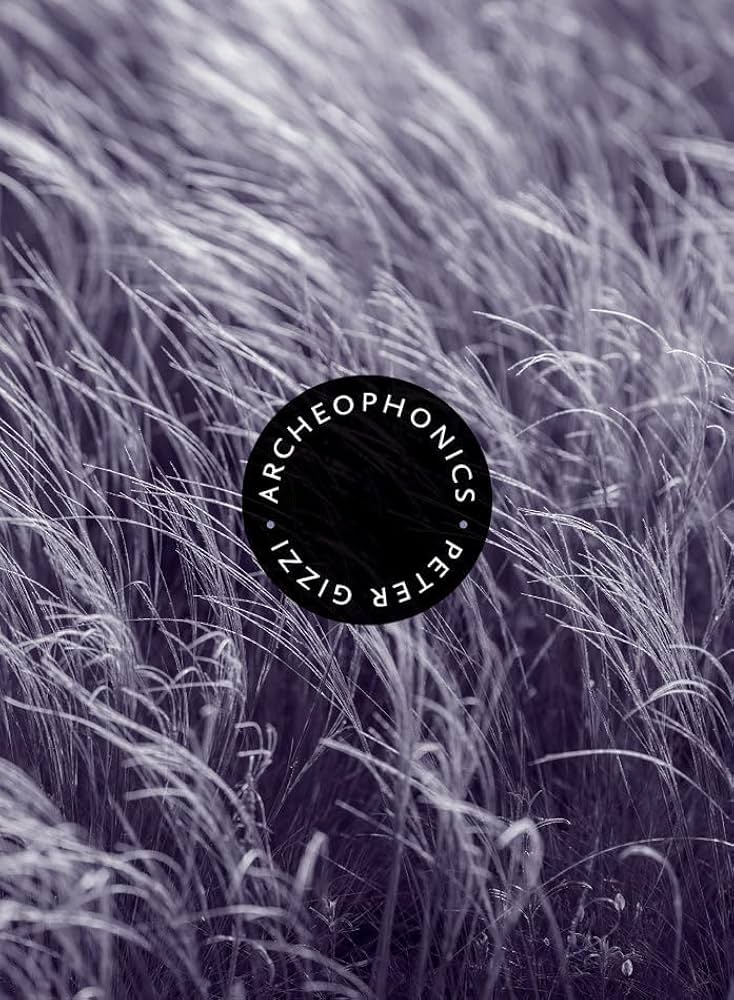Archeophonics by Peter Gizzi

In Eroding Witness, Nathaniel Mackey writes of “[a]n undertow / of whir im- / mersed in / words.” This whir resists the ordinary world named by words, gesturing to a “repressed” realm. To write with the whir is to create a space for the dead (whatever is “left out of reality”) to be present: “The song says the / dead will not / ascend without song.”
Gizzi chooses a line of James Schuyler’s to be his epigraph: “Poetry, like music, is not just song.” This line announces his project in Archeophonics (“the archeology of lost sound”) of using poetry as a means to know the whir, to converse with the dead.
Gizzi posits poetry as an eternal or eternally relevant thing suppressed by the “old language” of “statecraft.” He writes: “I always consult the air before composing air,” meaning that the force of his writing stems from tuning into existent yet distant or repressed frequencies. This project leads to frequent disorientation (“Where / do I actually live so far / outside my head”) and mood swings, between coming to terms with a world where you see “CVS in the distance” and envisioning a world after the end of the world in which plants will have the names of poets.
The ability to connect with the dead through the poem sits interestingly alongside observations about connecting with the living through text messages, like in “When Orbital Proximity Feels Creepy”:
Right now there are teenage microwaves
screaming through your body
while you are having text with me.
This is the moment I’ll need you to sing
with me.
I am making my way in some dark room
looking for other structures to love.
From the left something speaking
I can’t identify.
It’s getting harder and harder to hear the dead, because the channels are blocked out by waves more sinister, creepy, or carcinogenic than radio waves.
“Orbital Proximity” feels the strongest to me in this book, dramatizing an afternoon of writing (consulting the air) where Gizzi oscillates between moments of being absolutely present to the dancing of sunlight on the grain of the wood floors, “looking for other structures to love,” and accepting the ultimate fate spinning on “this ball in space”:
But I love this ball I’m riding on.
The strange hunk of metal and rock whizzing
around my loves and my loving.
The fact I spin and it spins and everything
is spinning close up.
From far away it’s so cool.
I guess they call this physics or they call it laws.
If they’re so well-made, why do we suffer?
Gizzi’s earnest wonder over the way that everything (atoms, earth, mind) is spinning combined with his feeling for the inherent melancholy of everything is my favorite part about his work. It is through these two aspects that I hear the moments where “hope” breaks through:
What if it were all music?
What if the day were a countertenor
informing us, besting bureaucracy,
offering sustenance against my case of the punks.
In asking if “it were all music,” Gizzi brings Mackey back to mind, in that the music always betrays its roots in melancholy, loss, alienation, and so forth, while at the same time postulating a more comprehensive reality, where what is “left out” (the dead) comes back. In such a world, would we need poetry?

Comments
Post a Comment